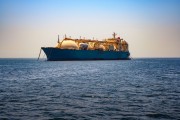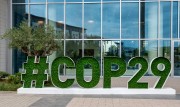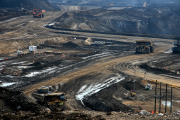Monday’s Throne Speech offered British Columbians a seemingly simple choice: either choose LNG as the path to prosperity, or choose economic decline. Without developing LNG, the Lieutenant Governor implied, we are “choosing to tell our children they should expect nothing from us but a bill to pay.” I wish I were exaggerating.
The B.C. government has consistently overstated the potential benefits of LNG. Such polarizing rhetoric is unproductive at best. This singleminded focus on LNG fails to recognize abundant economic opportunities in other sectors and leaves B.C. without a Plan B in case the economic windfall predicted from LNG doesn’t materialize.
According to Analytica Advisors, the global demand for clean technology (cleantech) was estimated at $1.1 trillion in 2012 and projected to grow to $2.5 trillion by 2022. It also estimates that the cleantech industry in Canada grew 9 per cent in 2012. In the same period, the mining, oil and gas sectors grew by only 0.3 per cent.
In B.C., Globe Advisors found that clean economy jobs (including energy supply and storage, transportation and buildings sectors) were responsible for 123,000 jobs and $15 billion in GDP in 2011. In Vancouver, green jobs increased by almost 20 per cent between 2010 and 2013, with a 50 per cent increase in jobs in the green buildings sector. Now imagine what these statistics would look like if the province put even one-half of the horsepower it has dedicated to LNG into developing the clean economy.
Two weeks ago, the World Bank put out a release in which 73 countries — representing 52 per cent of global GDP — and 1000 companies called for a global price on carbon. In the same week, the Rockefeller family joined a growing number of voices pledging to divest a total of $50 billion in fossil fuel assets.
The Global Commission on Economy and Climate also just released a study showing that the costs of investing in low-carbon solutions may be no more than what’s already predicted for infrastructure renewal — but only if strong climate policies are in place. All this while the cost of switching to renewables has been shown to be increasingly affordable for energy consumers.
There is a clear pattern emerging: climate change is changing the way we do business. In a world where strong climate policies are in place, the role for fossil fuels — including natural gas — will eventually decline.
We already know many of the pieces we need to position us well in a carbon-constrained world. We need to put in place more of the kinds of policies that increase demand for low-carbon goods and services domestically to encourage innovation in B.C. For example, broadening and increasing the rate of our carbon tax, following through on our commitment to net-zero buildings or investing more into transit and zero-emission vehicles. We also need to help companies selling clean energy solutions grow and compete in the export markets where the biggest contribution to GDP will be realized.
We know developing significant LNG will make it impossible for B.C. to meet its climate targets, but what about meeting our economic goals in an increasingly carbon-constrained world? Before we put all our eggs in the LNG basket, let’s think for a minute about what we are really leaving for our children if we build an economy that’s not resilient to a changing business climate, not to mention the changing physical one. We need to think about the role for LNG in this future.
As stronger climate policies are put in place, opportunities in carbon-intense sectors will decrease and opportunities in sectors providing low-carbon goods and services will increase. We want to be well positioned to take advantage of this shift. It’s time to have an adult conversation about the future of B.C.’s economy in the face of a rapidly changing climate.






